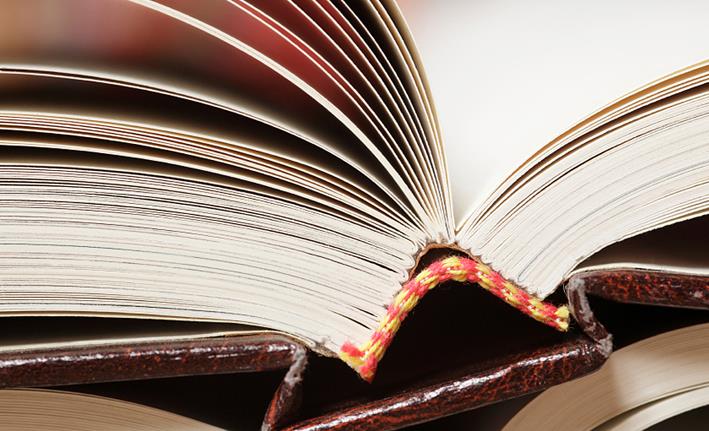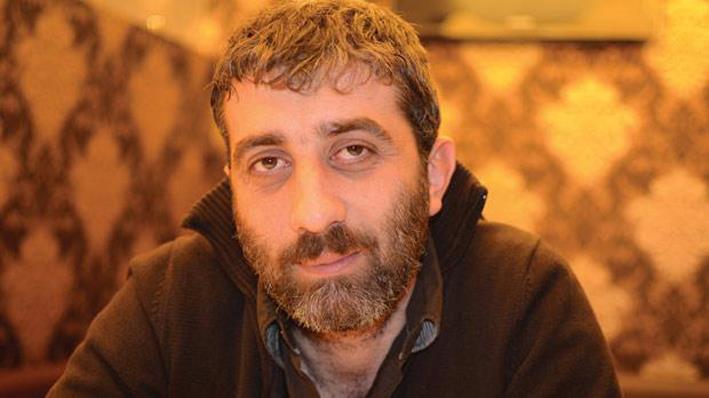This year’s Mediterranean Literature Festival will feature twelve writers from eight different countries. Among the special guests are Spanish-born poet Samantha Barendson and Maltese fiction author Mark Vella. They speak to Gabriel Schembri on their works, inspiration and plans for the future.

Samantha Barendson - ‘Love, good food and poetry’
Tell us a bit about yourself.
Samantha Barendson is my real name. I think life is too short to get bored. There are many ways to spend the time between now and death: Love, good food and poetry.
I form part of the ‘Union of poets who will die one day’ and we try to show and prove to everybody everywhere that poetry is important and entertaining.
When did you start writing?
I grew up in a house with many books and people who love to read. My grandfather was a bookseller and had his own book store in Argentina. I remember afternoons playing in the ground of the store with books around me, their powerful presence and their perfect smell. I wrote since then, little things, mini-books for my dolls, plays for my friends, secret diaries during teen-age period, and so on. But the real starting moment was summer 2004, I was 28 and I suddenly felt a necessity, an urgency. Poetry came later, in 2008, when I met the Spanish poet Alfons Cervera and discovered his poetical anthology "Los cuerpos del delito". After reading his book published in the late 1970s, I spent three nights writing "Los delitos del cuerpo", a poetic response to Cervera's book. 64 poems in Spanish and a first book published in 2012
What inspires you?
People. My poetry is essentially about people moving, loving, hoping, looking after other people, after dreams, after things they do not have, etc. I spent time looking at people on the street, on the metro, at cafes and any other place. I enjoy listening to conversations I am not invited to, I feel like a spy and use these pieces of life into my work.
What are your works about?
My works are about relations between people, about love, of couple or in families, also about exile from the language to the territory. I also work on rhythm and music, I like my texts as rounds as songs, I often get a melody and then put the text on.

Is there one common theme?
I think the common theme can be ‘the identity’.
You have lived in a number of different countries, how did these affect your work?
I was born in Spain from an Argentinian mother and an Italian father. I grew up in Mexico and then moved to France where I currently reside. I speak four languages and feel Franco-Italo-Argentinian. I feel intercontinental as my grandmother likes to call me. All this affects my work in a good way because I never know which language will appear when I am writing. I have no power of deciding, my brain does that for me. The negative point is that I have to translate everything by myself afterwards.
I also enjoy this richness when I perform on stage mixing all the languages. I can create music and different sounds using these different languages.
This year, I am very proud of having been selected by the European project "Versopolis" to attend several poetry festivals in Europe. To be a poet is a way to avoid frontiers.
What is it about poetry that you like so much?
Poetry allows me to be who I really am, without social barriers, without fear or judgement. In my books and on stage, I can be who I really want to be: a tango singer or a punk. I can use the most violent words, I can give as much love as I want, I can put my heart, blood, and guts, vagina and every part of me on it, there are no limits in poetry.
Why do you prefer it from other forms of writing?
My style is quite concise; poetry is the perfect size for me. I write as if I was painting or photographing something. Each of my poems is an image and I do not need too much space to show this image. And honestly, it takes less time than writing novels.
What are your plans for the future?
Writing a novel... I am now working with the Parisian editor JC Lattès who will publish my novel in September 2017.

Mark Vella – ‘I have written in my head more than I have written on paper’
Tell us a bit about yourself.
I currently head a translation unit within the Maltese Language Department of the European Commission's Directorate General for Translation in Luxembourg. All my work history has been connected with Maltese language and literature, first as a teacher and publisher, and then as a translator. Between 1998 and 2002, I ran Minima Publishers, an indie-publishing company that launched young new writers like Guze' Stagno, Immanuel Mifsud and Karl Schembri.
When did you start writing?
I have written in my head more than I have written on paper. I remember a particularly creative time round 2002-2008, but my novel was written in a short span of time after taking a leaf out of the NaNoWriMO concept, where I wrote an initial draft of 500,000 words in 30 days. Alex Vella Gera's Is-Sriep Regghu Saru Velenuzi was a sort of liberation or inistigation to use a particular voice, and the announcement of Merlin's #abbozz competition (which I subsequently won) egged me on to finish the project.
What inspires you?
Most probably things that happen in my life or that I observe which strike me as more powerful than reality itself.
What are your works about? Is there one common theme?
My published (and unpublished) pieces, apart form my novel are probably about lonely men, though I wrote a novel about a child and the politically explosive 1980s!
You lived in different countries, how does this affect your work?
I'm still coming to grips with the concept. It probably gave me the necessary distance from the object of my observation, which is essentially life from a Maltese perspective. This does not necessarily mean that Malta is the subject or the location: conversely, it's the fact that I write in Maltese that makes anything I write quintessentially Maltese.
What is it about fiction novel writing that you like so much? Why do you prefer it from other forms of writing?
I'm still not sure about my genre. I never expected to launch myself with a novel, but life conjured a series of unique events that led to X'Seta' Gralu lil Kevin Cacciattolo? It may be that the themes I am fond of are more suited to the short story.
What are your plans for the future?
Writing all I have in my mind. Hopefully with more consistency and regularity.
The Malta Mediterrenean Literature Festival organised by Inizjamed will be held between the 25 – 27 August at St Elmo.